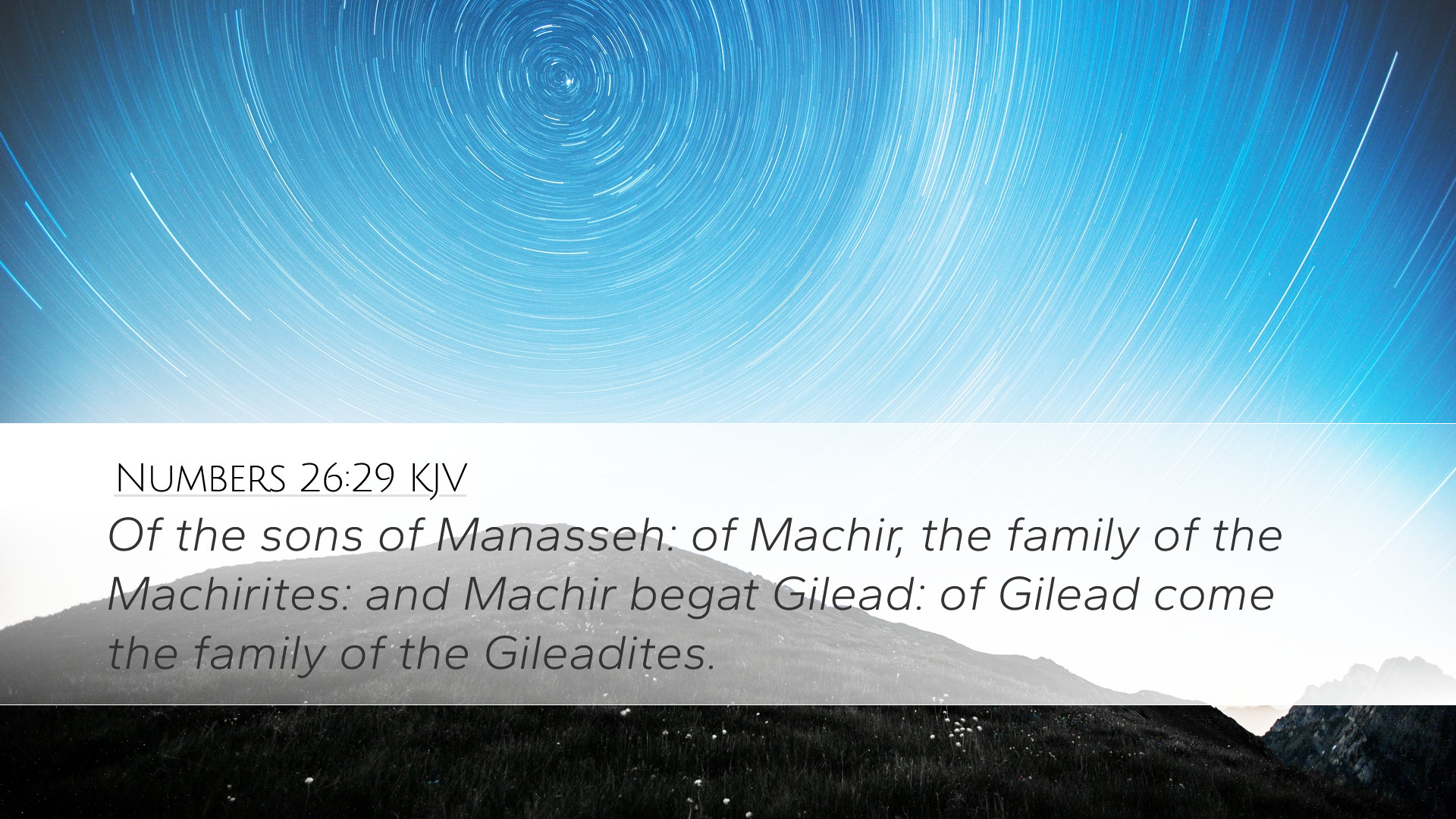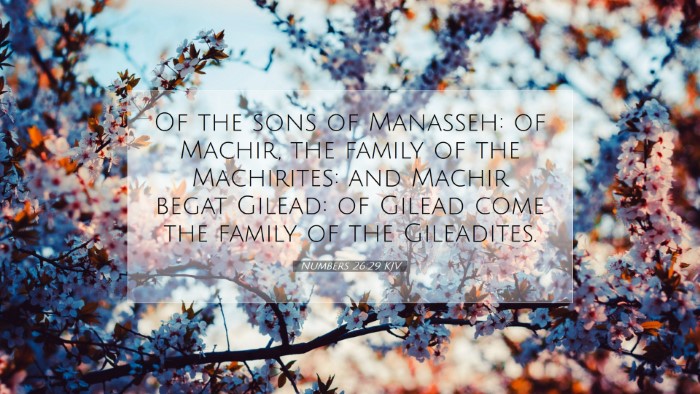Commentary on Numbers 26:29
Bible Verse: "And the name of the daughter of Asher was Serah: these are the families of the sons of Asher according to those that were numbered of them, fifty and three thousand and four hundred."
Introduction
The book of Numbers, often seen as a book of census and organization, holds significant theological insights. In Numbers 26:29, we find a reference to the lineage of Asher, specifically highlighting his daughter Serah. This commentary aims to explore the implications of Asher's progeny, the importance of genealogical records, and the glimpse this verse provides into God's covenant fidelity, particularly with marginalized figures such as women in biblical texts.
Genealogical Context
Genealogies are prevalent throughout Scripture and serve essential purposes.
- Historical Record: They provide an accurate historical account and continuity of the family lineage, vital for understanding God's covenant faithfulness.
- Theological Significance: The mention of Serah as the daughter of Asher highlights the inclusion of women in genealogical narratives, which is significant in the context of ancient Near Eastern society.
Commentary Insights
1. Matthew Henry's Reflection
Matthew Henry emphasizes that the genealogy of Asher showcases God’s providential care in preserving the lineage of Israel. He notes that while the text primarily lists the male descendants, the mention of Serah serves as a reminder of the integral role women played in the familial structures within Israel. It illustrates God's acknowledgment of women, not only as part of family lines but as names remembered in history.
2. Albert Barnes' Exegesis
Albert Barnes highlights that the families of Asher are mentioned after their census, indicating the health and prosperity of Asher's lineage, with a notable population count of 53,400. Barnes points out that this number reflects God’s faithfulness in multiplying Israel as He promised. The inclusion of Serah's name, although her direct lineage may not continue, signifies her importance and perhaps suggests that there may have been noble acts attributed to her name.
3. Adam Clarke's Analysis
Adam Clarke provides a detailed explanation of the etymology of the name "Serah," which he suggests may mean "to be abundant." He connects this notion of abundance to God’s blessings upon the tribe of Asher. Clarke notes that the descendants of Asher were noted for their prosperity, and the mention of Serah serves to underline the blessing upon the entire family. Additionally, he remarks on the significance of women's roles in the context of inheritance as seen in the broader narrative of the tribes of Israel.
Theological Implications
Numbers 26:29 uncovers a multifaceted theological framework...
- God's Faithfulness: This verse demonstrates God's faithfulness in maintaining His covenant promises to the tribes of Israel, ensuring their survival and growth even in challenging times.
- Inclusion of Marginalized Voices: By naming Serah, the text challenges the prevailing patriarchal narratives of the time and highlights the importance of women in God's redemptive plan.
- Covenantal Identity: The families mentioned build the identity of Israel as God's chosen people, reminding readers today of their own identity as part of the biblical narrative.
Conclusion
In summary, Numbers 26:29 offers a rich tapestry of meaning filled with historical, cultural, and theological insights. From the genealogical record showcasing God’s providence to highlighting significant female figures in biblical history, this verse is a testament to the inclusive and faithful character of God. Pastors, theologians, and students of the Bible are encouraged to consider these insights holistically, allowing the text to speak to contemporary realities of identity, faithfulness, and divine inclusion.


